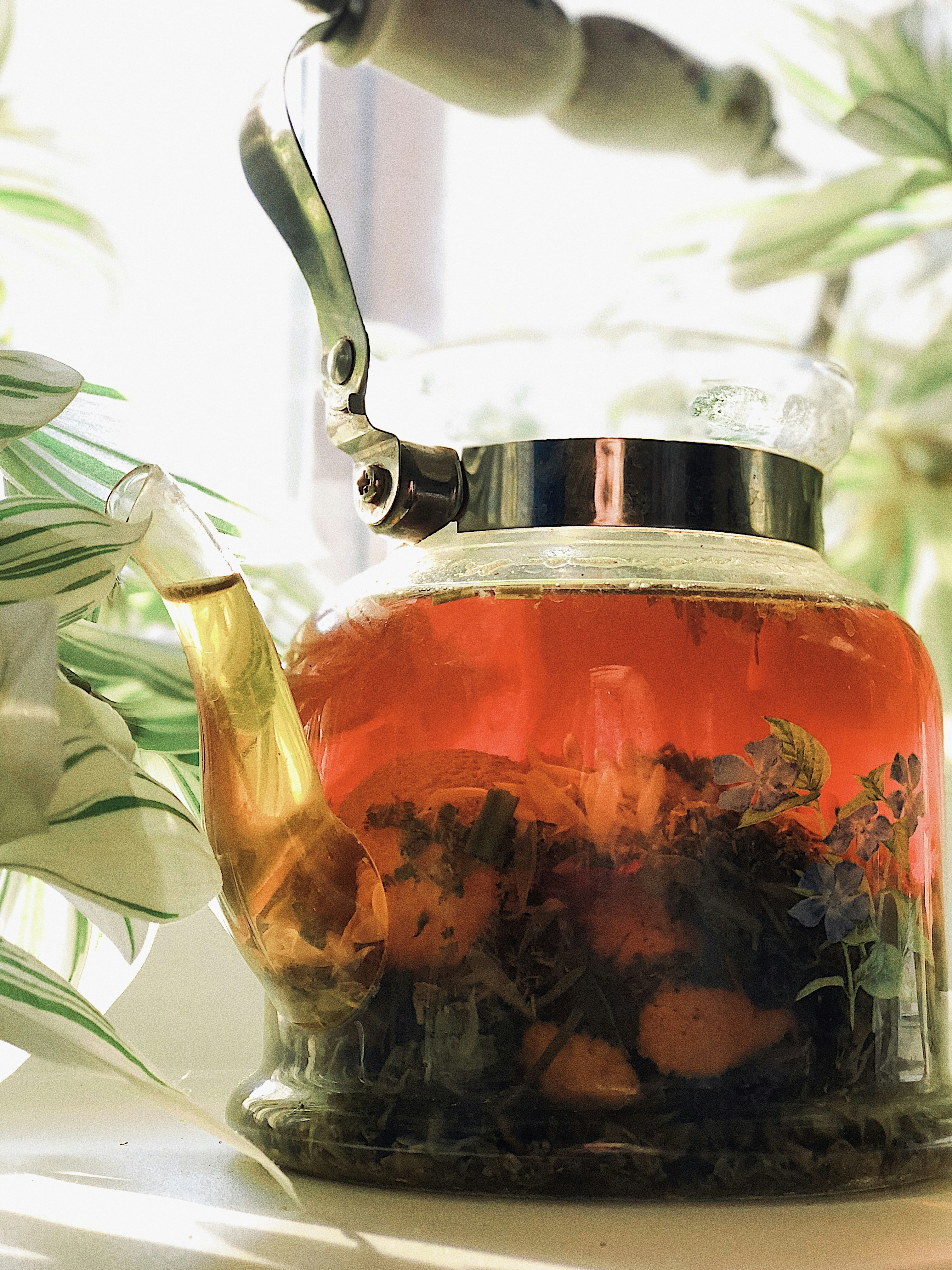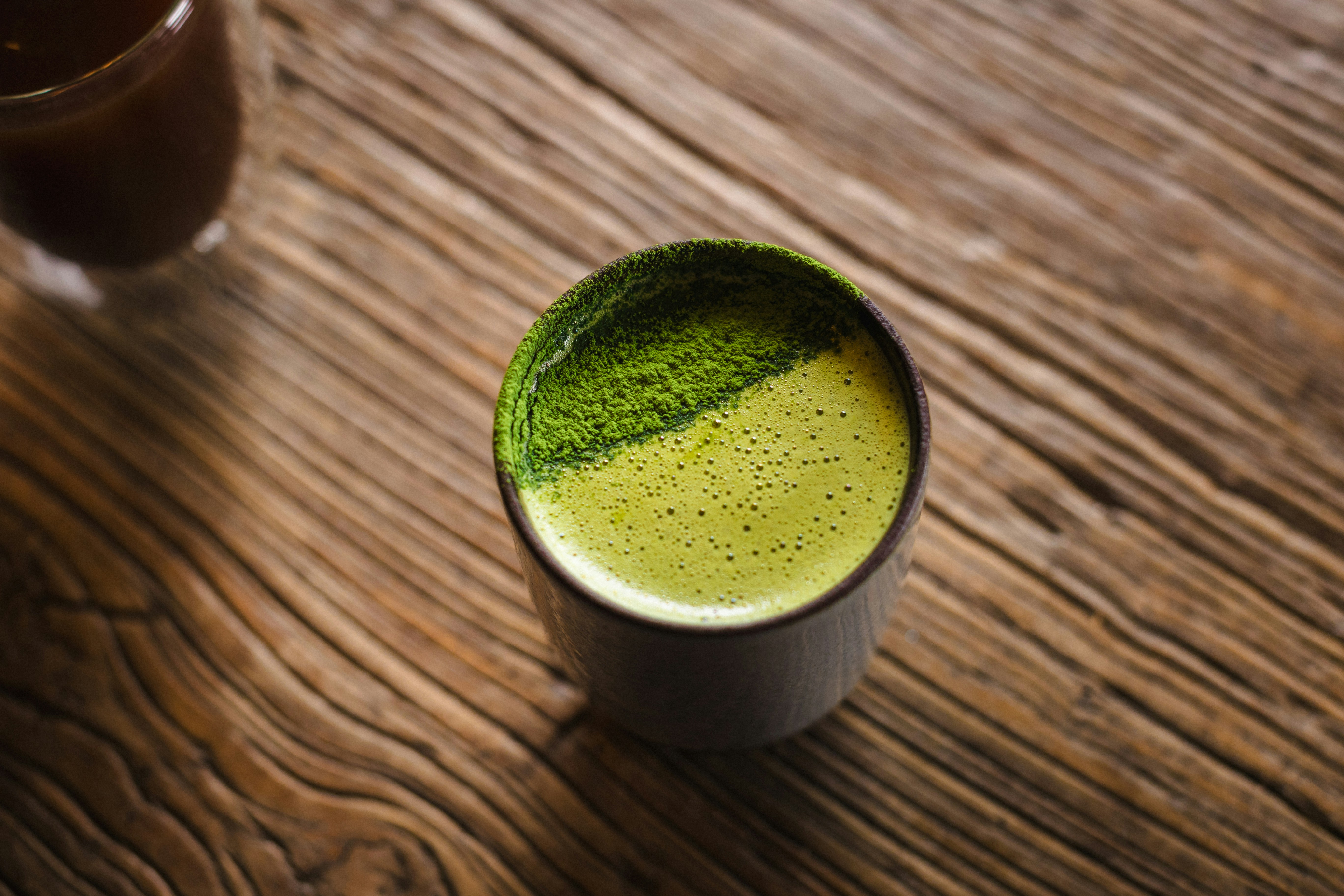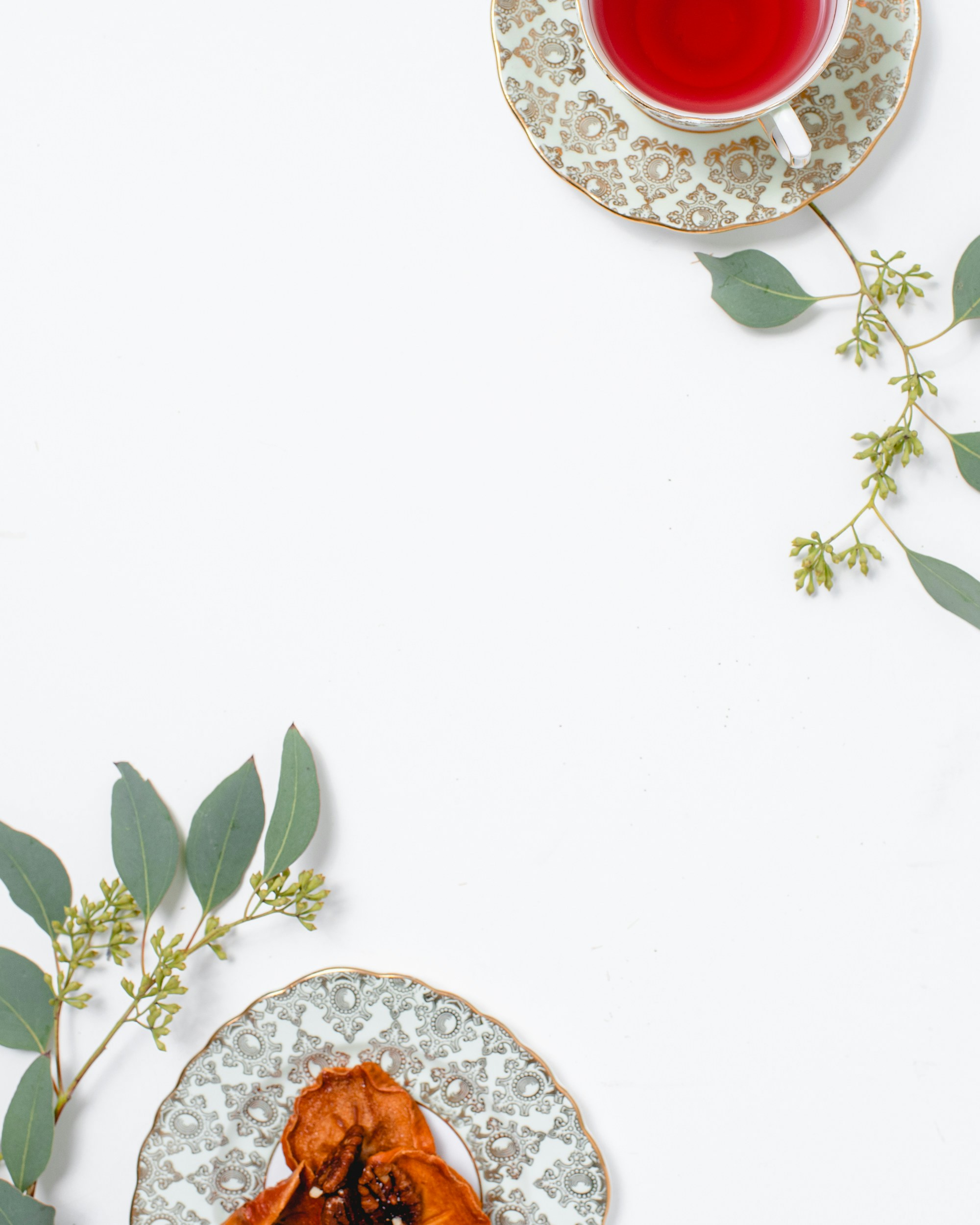Introduction: The Connection Between Tea and Spirituality
Tea transcends its role as a mere beverage, embodying a deeper significance as a conduit for enhancing spiritual wellbeing. Throughout centuries, various cultures have recognized tea not only for its flavors and health benefits but also for its profound impact on the mind and spirit. In many traditions, the act of brewing and consuming tea is steeped in ritual, transforming an ordinary moment into one of mindfulness and intentionality. This sacred practice offers a pathway to inner reflection, allowing individuals to cultivate a greater connection with themselves and the world around them.
In Asian cultures, for instance, the tea ceremony embodies a philosophy of harmony and respect. Each gesture in the preparation and serving of the tea is deliberate, emphasizing the importance of being present in the moment. Such mindfulness fosters a deeper connection to one’s thoughts and feelings, creating a tranquil space for personal insight and meditation. Similarly, in the context of Western spiritual practices, tea serves as a social lubricant that strengthens relationships and fosters communal bonds. Gathering over a cup of tea invites conversation that can lead to profound spiritual discussions, nurturing the connection between individuals.
This exploration of tea’s spiritual benefits opens a door for readers to reflect on their unique experiences with this ancient drink. Whether through solo rituals or shared moments of connection, many may find that tea provides a comforting presence during their spiritual journey. The intention behind this writing is not merely to highlight the historical significance of tea, but to encourage the reader to engage with their own relationship to tea and spirituality. How has this beverage influenced your mindfulness practices? In what ways has tea prepared you for moments of insight or contemplation? These questions invite a deeper exploration of the ways tea can enrich spiritual wellbeing.
A Brief History of Tea in Spiritual Practices
Tea has played a significant role in various spiritual practices throughout history, serving as more than just a beverage but as a conduit for deeper consciousness and connection to the divine. In many cultures, the act of consuming tea has evolved into rituals that foster mindfulness and meditation. One notable example is in Buddhism, particularly in Zen traditions, where tea is often consumed during meditation sessions. The practice emphasizes being present in the moment, and the slow, deliberate act of sipping tea complements the silent reflection. Monks have used tea for centuries as a tool to enhance their focus during long periods of meditation, helping to keep them alert while allowing for tranquility.
In Taoism, tea is intertwined with the philosophy of harmony and balance within nature. The ritual of tea drinking symbolizes a connection with the natural world, whereby practitioners believe that the tea leaves and the water used in preparation have spiritual significance. Tea is often seen as a catalyst for achieving inner peace and serenity, promoting a profound awareness of the present moment.
Another prominent example is the Japanese tea ceremony, known as “Chanoyu.” This intricate ritual embodies aesthetic values, discipline, and the underlying principles of Zen Buddhism. The ceremony involves a series of precise and intentional actions, such as the preparation and presentation of matcha (powdered green tea), facilitating a meditative state for both the host and guests. Through this structured process, practitioners cultivate a sense of gratitude, respect, and mindfulness, reinforcing the interconnectedness of participants and the tea itself.
Across different cultures, tea has transcended its role as a mere beverage, integrating into spiritual aspects of life. From fostering mindfulness in Buddhism to promoting inner harmony in Taoism, tea rituals serve as powerful tools for spiritual growth and reflection, highlighting its profound significance in various cultural practices.
How Tea Facilitates Mindfulness and Presence
The practice of brewing and enjoying tea can significantly enhance mindfulness and presence in our daily lives. Engaging with tea engages the senses and invites individuals to slow down, reflect, and immerse themselves in the experience. From the moment one begins to prepare the tea, the process itself encourages a meditative state that draws attention to the present moment.
As water heats to a boil, the anticipation builds. The aroma of loose leaves or teabags fills the air, turning what may be a mundane task into a sensory ritual. Each scent, from a delicate Earl Grey with hints of bergamot to robust green tea, invites one to notice specific details. Such aromas not only comfort but also anchor us, reminding us to breathe deeply and embrace the tranquility of the moment.
Color plays an essential role in this mindful experience. As tea brews, its hue transforms, offering a visual feast that reflects its essence. Observing the chromatic changes allows individuals to appreciate the artistry of nature in their cup. This simple observation fosters a sense of wonder, encouraging a moment of pause and reflection.
The taste of tea further heightens this sensory engagement. Each sip provides an opportunity to savor the flavors and appreciate every nuance. Whether it’s the earthy undertones of pu-erh or the bright notes of oolong, paying close attention to the taste can foster a state of mindfulness. By concentrating on the sensory experiences of aroma, color, and flavor, individuals can shift their focus away from daily stressors and cultivate a deeper connection with the present.
Many individuals have reported finding peace through their tea rituals. These practices allow for quiet contemplation, offering a brief escape from the chaos of daily life. Whether in solitude or shared with others, these moments spent engaging with tea can remind us to slow our thoughts, embrace stillness, and appreciate the beauty of now.
Tea as a Medium for Reflection and Introspection
Tea drinking has long been a ritual that transcends mere consumption, serving as a powerful conduit for reflection and introspection. In an age filled with distractions, the simple act of preparing and savoring a cup of tea creates a serene environment that fosters self-examination and quiet contemplation. Many individuals find that this calming ritual allows them to carve out a moment of peace amidst their busy lives, providing a unique opportunity to delve into their thoughts and emotions.
Numerous narratives illustrate the diverse ways in which tea time can lead to profound personal insights. For instance, people often recount moments when the warmth of a freshly brewed cup prompted them to ponder significant life decisions—whether contemplating a career change, evaluating a relationship, or simply assessing their emotional state. The meditative quality of sipping tea encourages individuals to slow down and reflect, granting them the mental space to explore their feelings and thoughts without judgment.
The soothing effects of tea also play a pivotal role in supporting emotional wellbeing. As the act of drinking tea becomes an intentional practice, it allows individuals to connect with their inner selves. Many have shared experiences of gaining clarity during these moments, where the gentle aroma and taste of the tea can evoke a sense of nostalgia or peace, making personal reflection an enriching endeavor. This connection to oneself is crucial for spiritual health, as it encourages self-awareness and promotes emotional stability.
In conclusion, incorporating tea into one’s daily routine not only enhances physical wellbeing but also nurtures a space for reflection and introspection. Through the simple act of enjoying tea, individuals can access deeper understanding and insights about their lives, ultimately supporting their overall emotional and spiritual health.
The Role of Herbal Teas in Spiritual Healing
Herbal teas have long been associated with spiritual healing and emotional wellbeing. They offer a gentle yet powerful means to connect with oneself, promoting relaxation, clarity, and grounding during spiritual practices. One of the most revered herbal teas, chamomile, is known for its calming properties. It helps in easing anxiety and stress, paving the way for deeper meditation and reflection. Many practitioners incorporate chamomile tea into their ritual practices, drinking it before meditation to enhance tranquility and encourage an open heart.
Peppermint tea is another popular choice, celebrated for its refreshing flavor and clarifying effects. This herbal infusion is believed to invigorate the mind, leading to heightened awareness and focus. Spiritual adepts often sip peppermint tea during brainstorming sessions or while journaling intentions, as it is thought to aid in mental clarity and provide insights necessary for personal growth. Testimonials from tea enthusiasts reveal that incorporating peppermint into their spiritual routines has resulted in clearer thought processes and improved emotional balance.
Additionally, teas like lavender and lemon balm are famous for their soothing effects on the spirit. Lavender is often associated with tranquility and peace, making it an ideal choice for those seeking to release tension or stress. Drinking lavender tea before bed can promote restorative sleep and dream clarity, which are valuable for spiritual exploration. Lemon balm, similarly, is noted for its uplifting properties, providing feelings of joy and positivity, crucial for fostering emotional healing.
Incorporating these herbal teas into daily spiritual practices not only enhances the experience but also encourages a deeper connection to one’s inner self. By honoring these herbal remedies and acknowledging their benefits, individuals can support their spiritual journeys. Ultimately, the ritualistic practice of brewing and enjoying herbal tea serves as a gateway to personal transformation and healing.
Creating a Sacred Tea Ritual for Spiritual Wellness
Establishing a sacred tea ritual can profoundly enhance your spiritual wellbeing, providing a quiet space to connect with yourself and the universe. To embark on this journey, begin by selecting the right tea. Choose a blend that resonates with your spiritual goals; for example, chamomile promotes relaxation, while green tea can inspire clarity. Herbal teas such as lavender or passionflower are excellent options for calming the mind and encouraging meditative states.
After selecting your tea, the next step is to set the scene. Create a comfortable and inviting space that allows you to disconnect from daily distractions. This could be a cozy nook in your home, a balcony surrounded by nature, or a serene corner in your garden. Consider using soft lighting, such as candles or string lights, to cultivate a tranquil atmosphere. Incorporate elements that resonate with you spiritually, like crystals, incense, or meaningful artwork, as these can elevate your experience.
As you prepare to steep your tea, take a moment to ground yourself. This can be done through deep breathing or light stretching. Focus on your breath and center your thoughts. When the tea is ready, pour yourself a cup and hold it with intention. You can then proceed to meditate or set personal intentions. Visualize your desires and aspirations as you enjoy your tea, allowing the warmth and aroma to envelop you. Personalize this practice based on your preferences—whether it’s listening to calming music, journaling, or simply sitting in silence, let your intuition guide you.
Remember that the key to a successful sacred tea ritual lies in personalization. Adapt this practice to fit your unique spiritual path, and don’t hesitate to modify elements to enhance your comfort. Allow your sacred tea ritual to become a cherished sanctuary for your mind and spirit.
Tea and Community: The Spiritual Connection with Others
Tea has long been celebrated not merely as a beverage, but as a catalyst for community and connection. The act of sharing a cup of tea transcends the mere enjoyment of its flavor; it serves as a powerful means to strengthen relationships. Across various cultures, different tea rituals have emerged, each embodying a unique blend of social interaction and spiritual experience.
One such example is the traditional Chinese tea ceremony. This intricate ritual is a profound expression of respect, harmony, and gratitude. The meticulous process of preparing and serving tea creates an atmosphere of mindfulness that encourages participants to be present. Through this ceremony, bonds are deepened, as individuals reflect on their relationships and the shared experience of enjoying tea together. The tea itself becomes a symbol of unity, fostering a sense of belonging and communal spirit.
Similarly, British afternoon tea illustrates the importance of tea in social bonding. This history-laden tradition not only provides an opportunity to savor delicious treats but also emphasizes the significance of time spent with friends and family. The act of gathering over tea creates an invitation for conversation, laughter, and connection, reinforcing social ties. Many individuals recount personal stories of how afternoon tea has marked significant milestones or offered moments of comfort and support during challenging times.
Furthermore, in many cultures, tea gatherings serve as a communal space where stories are exchanged, and wisdom is shared. Whether it’s a casual meet-up or a formal ceremony, these moments often lead to deeper understanding and appreciation of one another. The simple act of sharing tea, then, becomes a spiritual experience that uplifts both the giver and the receiver.
In conclusion, the communal aspect of tea drinking plays a vital role in fostering and enriching relationships. From traditional rituals to casual encounters, tea has the power to connect individuals on a deeper, spiritual level, highlighting the importance of community in our lives.
Testimonials: Personal Stories on Tea’s Spiritual Impact
Across various cultures and traditions, tea has held a significant role, often transcending mere sustenance to become a vehicle for spiritual reflection and mindfulness. Numerous individuals have shared their personal accounts of how tea has positively influenced their spiritual journeys. One such testimony comes from Samantha, a yoga instructor, who describes her daily tea ritual as a moment of connection with herself. “Every morning, as I sip my green tea, I take a moment to reflect and set my intentions for the day. The warmth and aroma allow me to ground myself. Tea has truly become a spiritual ally in my life,” she expresses.
Similarly, John, an artist, recounts his experience by saying, “While sketching my surroundings, I often take breaks to brew herbal tea. It’s like a meditation for me; the repetitive act of preparing tea pulls me into the present moment, allowing creativity to flow.” His narrative highlights the transformative power that the simple act of brewing tea can harbor, nurturing both artistic endeavors and spiritual mindfulness.
In another compelling account, Maria, a busy professional, shares how tea serves as a remedy for stress. “Whenever I feel overwhelmed, brewing a cup of chamomile tea helps me center myself. It’s more than just a beverage; it’s a moment of peace in my hectic life, allowing me to reconnect with my inner self.” Maria’s story underlines tea’s efficacy in promoting spiritual well-being amidst life’s chaos.
Each of these testimonials reveals a common theme: the significant impact that tea can have on spiritual health. From enhancing mindfulness to fostering creativity, the diverse experiences underscore a shared admiration for tea’s spiritual dimensions. The community of tea drinkers continues to grow, with many discovering their own unique ways to incorporate tea into their spiritual practices.
Conclusion
Throughout this exploration of how tea can support spiritual wellbeing, we have delved into the various ways this ancient beverage serves as a conduit for mindfulness and introspection. From its calming properties that foster a tranquil environment for meditation to its role in establishing meaningful rituals, tea emerges as a powerful ally on one’s journey of spiritual growth. By making time to savor a cup of tea, individuals can cultivate a deeper connection with themselves and their surroundings, enhancing their overall spiritual experience.
Moreover, the act of preparing and enjoying tea can become a meditative practice, promoting a sense of presence that is often elusive in our fast-paced lives. Each sip can remind us to engage fully with the moment, allowing feelings of gratitude and stillness to wash over us. Through such practices, tea invites a sense of clarity, helping to align our thoughts and intentions with our spiritual goals.
As you reflect on your own relationship with tea and spirituality, consider the various practices that resonate with you. What role does tea play in your routines? Whether it is a quiet moment in the morning, a shared experience with friends, or a solitary evening ritual, tea can serve as a bridge to deeper understanding and connection. We encourage you to share your experiences and insights in the comments below, fostering a community of reflection and growth.
In embarking on this journey, let us be inspired to integrate tea into our spiritual practices. As we brew our favorite blends, may we also brew a sense of mindfulness and connection, enriching our lives one cup at a time.








Leave a Reply